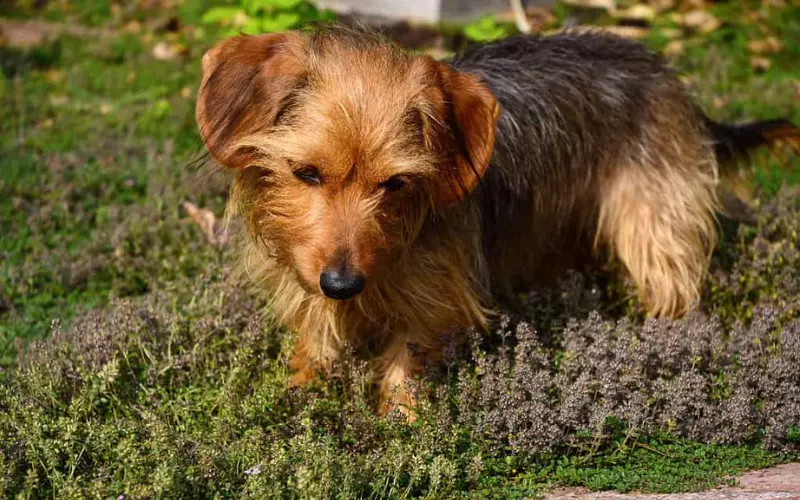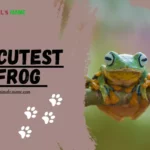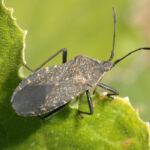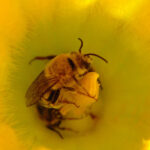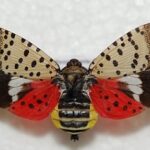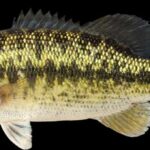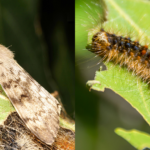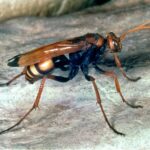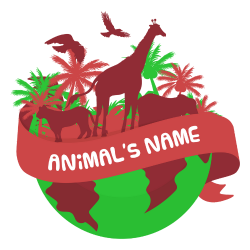Are you curious about the fascinating world of mammals? Look no further as we plunge into the depths of knowledge about the adorable Dorkie! These small creatures belong to the canine family and are a mix between a Yorkshire Terrier and a Dachshund. They are commonly known for their charming personalities and cuddly appearances.
Let’s venture into the history of Dorkies. These delightful creatures first emerged in the 1990s due to mixed breeding. Their popularity quickly grew, capturing the hearts of animal lovers worldwide. Dorkies have become a beloved breed due to their endearing traits, making them a cherished addition to many families.
Dorkies come in various sizes and typically range from small to medium. They have a height of around 7 to 10 inches and can weigh between 5 to 12 pounds. Despite their small stature, these animals have a lively and energetic nature. Their tiny bodies are filled with an abundance of energy!
When it comes to habitats, Dorkies are versatile and adaptable. Whether in an apartment or a spacious house, these animals can easily adapt to different environments. They thrive in loving homes where they receive ample care and attention. With their playful and friendly nature, they quickly become a treasured companion to those around them.
Regarding classification, Dorkies fall under the mammal category as part of the canine family. They are warm-blooded and give birth to live young, just like other family members. Known for their keen senses and loyal nature, Dorkies are a delight to be around.
History of Dorkie
The Dorkie is a unique and adorable animal that has a fascinating history. Although it is not clear when exactly the Dorkie was first bred, it is believed that this delightful mix of a Dachshund and a Yorkshire Terrier originated in the United States. These two breeds are known for their distinct characteristics, and when combined, they create a wonderful and loving companion.
The Dorkie’s history is closely connected to the development of designer breeds, which gained popularity in the late 20th century. Designer breeds are created by crossing two purebred dogs to obtain certain desirable traits in the case of the Dorkie, breeders aimed to create a small-sized dog with a friendly disposition and an affectionate nature. The Dachshund contributes its long body and affectionate personality, while the Yorkshire Terrier adds its elegant appearance and intelligence.
Over time, the Dorkie has become a beloved pet for many families worldwide. Its small size makes it suitable for apartment living, and its friendly and playful nature makes it a great companion for children and adults. Like its parent breeds, the Dorkie is known for being loyal, protective, and loving towards its family. It enjoys being a part of household activities and is always ready to offer kisses and cuddles.
As the popularity of designer breeds continues to grow, so does the recognition of the Dorkie. This lovable hybrid is cherished by many, and its history is a testament to the desire for unique and charming pets. Whether playing fetch in the backyard or snuggling on the couch, the Dorkie brings joy and happiness to those fortunate enough to call it their furry friend.
Importance of Dorkie
The Dorkie is a special kind of animal that brings a lot of joy and happiness to people. It is important to understand and appreciate this little creature as it has many wonderful qualities.
First of all, the Dorkie is a great companion. Its small size makes it easy to take care of, and it can fit in any home. Whether you live in a big house or a small apartment, the Dorkie will be your loyal friend. This furry animal is known for its friendly and loving nature. It will always be there to cheer you up when you’re feeling sad or lonely.
Secondly, the Dorkie is a smart animal. It can be easily trained to do various tricks and commands. This makes it a great pet for families with children, as it can provide entertainment and be a source of joy. The Dorkie’s intelligence also means that it can quickly learn to adapt to different situations and environments, making it a versatile and flexible pet.
Finally, the Dorkie is a healthy animal. It requires regular exercise and a nutritious diet, but it doesn’t have many health problems. This means it can live a long and happy life by your side, bringing you joy for many years.
The Dorkie is a wonderful animal to have as a pet. It is a great companion, a smart animal, and it has good health. If you’re looking for a little furry friend to bring happiness into your life, consider getting a Dorkie.
Amazing Facts About Dorkie
1. The Dorkie is a small-sized dog breed that is a mix between a Dachshund and a Yorkshire Terrier.
2. Dorkies are also called Yorkie Dachshund or Dorkie Terrier.
3. They generally have a long body like a Dachshund and a small size like a Yorkshire Terrier.
4. Dorkies can weigh between 6 to 12 pounds (2.7 to 5.4 kilograms) and reach a height of around 6 to 8 inches (15 to 20 centimeters).
5. This breed has a soft and fluffy coat that can come in various colours, such as black, brown, tan, or a combination.
6. Dorkies are known to be affectionate and loving dogs that enjoy spending time with their owners.
7. They are generally good with children and other pets, making them a great choice for families.
8. Dorkies are intelligent dogs and can be easily trained with positive reinforcement techniques.
9. Despite their small size, they are active and energetic, requiring daily exercise and playtime.
10. Their tiny stature makes them suitable for apartment living, but they still need regular walks outside.
11. Dorkies have a high prey drive, which means they may chase after small animals or birds if not properly trained and socialized.
12. This hybrid breed can be prone to certain health issues, such as dental problems, patellar luxation, or obesity. Regular vet check-ups are essential.
13. Dorkies have a lifespan of approximately 12 to 15 years, depending on their overall health and care.
14. They tend to bark, alerting their owners to potential dangers or strangers approaching their territory.
15. Regular grooming is necessary for Dorkies due to their thick fur, requiring brushing to prevent matting and occasional bathing to keep them clean and nice-smelling.
Can we keep Dorkie as our Pet?
The Dorkie animal is a fascinating creature that many people may be curious about keeping as a pet. However, it is important to understand that the Dorkie animal is not a real animal. It is a made-up combination of a Dachshund and a Yorkie, both breeds of dogs. Therefore, we cannot keep a Dorkie animal as a pet because it does not exist in real life.
In our world, there are many amazing and unique animals that we can keep as pets, such as cats, dogs, birds, and fish. However, there are also some animals that we cannot have as pets because they are extinct. Extinct means that these animals no longer exist on Earth. There are many reasons why an animal might become extinct, such as environmental changes or hunting by humans. Unfortunately, when animals are extinct, we can no longer keep them as pets or see them in the wild.
It is important to remember that while imaginary animals like the Dorkie may seem fun and interesting, it is best to focus on real animals we can own and care for. There are so many wonderful pets out there that provide companionship and love, and it is our responsibility to care for them and appreciate the beauty of the animal kingdom around us.
Size of Dorkie
The Dorkie, also known as the Dachshund Yorkie mix, is a small-sized dog that combines features from both its parent breeds. It is a lively and affectionate pet that can bring joy to any home. Typically, Dorkies have a compact and sturdy build, measuring around 8 to 11 inches in height and weighing between 6 to 12 pounds. Their small size makes them suitable for apartment living, and they can easily adapt to various living environments.
Despite their small stature, Dorkies have big personalities. They are known for their confident and assertive nature, characteristic of the Dachshund and the Yorkshire Terrier. Dorkies are incredibly friendly and love being around their families. They often form strong bonds with their owners and enjoy participating in their daily activities. Additionally, their small size allows them to participate in various exercises and playtime, making them a great choice for active individuals or families with children.
In terms of appearance, Dorkies generally have a long and rectangular-shaped body, much like the Dachshund. Their coat can vary depending on the genetic makeup of each dog, with possibilities ranging from smooth and short to long and silky. Many Dorkies also inherit the trademark floppy ears of the Dachshund, which only adds to their charm. Regular grooming is necessary to keep their coat healthy and shiny, while their small size helps to make this process more manageable.
The Dorkie is a small-sized dog breed that combines the best traits of the Dachshund and Yorkshire Terrier. Their compact and sturdy build, along with their affectionate and friendly nature, makes them a great addition to any household. With their lively personalities and manageable grooming needs, Dorkies offer endless companionship and joy to their owners.
Habitat of Dorkie
The Dorkie animal is typically found in various habitats, but they are most commonly seen in homes as companion pets. These adorable creatures thrive in environments where they receive lots of attention, love, and care from their owners. The habitat of a Dorkie mainly consists of comfortable living space within a house, preferably with a warm and cosy bed to curl up in.
As indoor pets, Dorkies do not require a large area to move around like other animals. They feel content and safe indoors, making them popular among families living in apartments or small houses. It is necessary to provide them with an environment well-suited to their small size. This means creating a space where they can easily access food, water, and a designated area for bathroom needs.
In addition to a cosy living space, it is important to take Dorkies outside for walks and exercise. They love exploring their surroundings and being able to expend some of their energy. While outside, it is crucial to keep them on a leash or within a fenced area to ensure their safety. Dorkies are known to be curious and may wander off if not properly supervised.
The habitat of a Dorkie animal primarily consists of a warm and comfortable living space within a home. They thrive in environments where they can receive attention and care from their owners. While they can adapt well to small spaces, it is important to provide them with opportunities for exercise and exploration outside as well.
Evolution of Dorkie
The Dorkie animal, also known as the Yorkie Dachshund Mix or Yorkie Weiner dog, is a delightful crossbreed that has become increasingly popular in recent years. This adorable creature is the offspring of a Yorkshire Terrier and a Dachshund, resulting in a unique mix of traits from both breeds. The evolution of the Dorkie can be traced back to the rising popularity of designer dogs and the desire to create a companion with the best qualities of each parent breed.
Initially, breeders sought to combine the Yorkie’s small size and playful nature with the Dachshund’s longer body and bold personality. This crossbreeding aimed to create a companion that is not only compact but also full of energy and charm. Over time, the Dorkie has gained recognition for its endearing looks and lovable disposition.
As the demand for Dorkies grew, breeders continued to select individuals with desirable traits and breed them together. This selective breeding allowed for the refinement of characteristics such as size, coat color, and temperament. Today, Dorkies can vary in appearance, with some resembling the Yorkie more and others favouring the Dachshund. Regardless of their specific traits, all Dorkies share a playful, affectionate, and loyal nature that makes them beloved pets.
The evolution of the Dorkie animal demonstrates how selective breeding can result in the creation of a unique and cherished breed. By combining the best of two breeds, breeders have brought forth a small dog with a big heart. Whether you fancy a tiny companion or are drawn to a more adventurous friend, the Dorkie offers a delightful mix of traits that can bring joy to any household.
Classification of Dorkie
The Dorkie is a lovable and popular type of dog. It is a mix between a Dachshund and a Yorkshire Terrier. This special breed is considered a designer dog, meaning it is a deliberate cross between two purebred dogs. Although not recognized by major kennel clubs, the Dorkie has many unique traits that make it an adorable and sought-after pet.
In terms of appearance, the Dorkie inherits characteristics from both parent breeds. It usually has a long body like a Dachshund with short legs and a small, compact size. The coat can vary in length and colour, but Dorkies commonly have glossy and silky fur. Their eyes are round and bright, and their ears can be floppy or upright. Overall, the Dorkie’s appearance is quite charming and endearing to many.
Regarding temperament, the Dorkie is known for being a loving and loyal companion. This breed is often described as friendly, playful, and affectionate towards its owners. Dorkies are generally good with children and other pets if properly introduced. They are intelligent dogs that can be easy to train, but they might also show stubbornness occasionally. Regular exercise and mental stimulation are important to keep them happy and healthy.
The Dorkie is a mixed breed that combines the Dachshund and Yorkshire Terrier. They have a cute and distinctive appearance, with a small size and shiny coat. Dorkies are known for their affectionate and loyal nature, although they can sometimes be stubborn. They make great family pets and are enjoyed by many dog lovers worldwide.
Different Types of Dorkie
Dorkie Animal: Yorkie and Dachshund Mix A Dorkie is a popular designer dog breed created by mixing a Yorkshire Terrier and a Dachshund. These small-sized dogs are known for their playful and friendly nature, making them great family pets. Dorkies have a unique appearance with a compact body, long silky hair, floppy ears, and expressive eyes. They are intelligent and trainable dogs, making them suitable for obedience training and learning tricks. Dorkies require regular exercise to stay healthy, so daily walks and playtime are essential for their well-being.
These hybrid dogs are generally good with kids and other pets, making them a great addition to a household. Dorkies have moderate to high energy levels, so mental and physical stimulation is important. They may inherit certain health issues from their parent breeds, so regular veterinary check-ups are necessary. Grooming needs of a Dorkie include regular brushing to prevent tangles in their long hair and occasional baths. Dorkies are known to be loyal and affectionate companions, bringing joy and happiness to their owners’ lives.
Geographical Presence of Dorkie
The Dorkie Animal can be found in the northern region of North America. This adorable creature is mainly seen in New York, Pennsylvania, and Ohio. Its habitat consists of forests and suburban areas where it can easily scurry around and find shelter. The Dorkie is known for its small size, with an average height of 10 to 12 inches and 8 to 15 pounds. It has a long, fluffy coat that can be either curly or straight, and it often has a mix of colours, including brown, black, and white.
However, the Dorkie is not usually found in warmer regions or near the equator. This is because these regions have different climates and vegetation that may not suit the needs of the Dorkie. It prefers cooler temperatures and environments with a variety of trees and plants. Therefore, you will unlikely find a Dorkie in Florida or Texas.
The Dorkie Animal is primarily found in the northern region of North America, particularly in states such as New York, Pennsylvania, and Ohio. It prefers habitats with forests and suburban areas. However, you will not find the Dorkie in warmer regions or areas closer to the equator, as it does not thrive in those climates.
Scientific Name of Dorkie
The scientific name of the Dorkie animal is Canis familiaris. This name refers to a specific breed of dog that crosses between a Dachshund and a Yorkshire Terrier. The Dorkie is known for its small size, long body, and spirited personality.
The first part of the scientific name, Canis, refers to the biological genus that includes all domestic dogs. This means that the Dorkie belongs to the same group as other dog breeds, like Labradors and Bulldogs. The second part, familiaris, is the species name that distinguishes dogs from other animals.
The Dorkie is a popular breed due to its adorable appearance and friendly nature. They often have a mix of characteristics from both parent breeds. Despite their small size, Dorkies are energetic and require regular exercise to keep them healthy and happy. They may have a long or short coat and come in various colours. Overall, the Dorkie is an affectionate and loyal companion that brings joy to many households.
Diet of Dorkie
The diet of the Dorkie animal is an important aspect of its overall well-being. Dorkies primarily eat a combination of dry dog food and wet dog food. These foods are specially formulated to provide the necessary nutrients and vitamins that the Dorkie needs to stay healthy.
In addition to dog food, Dorkies may also enjoy occasional treats such as biscuits or chewy treats. However, it’s important to remember that these treats should only be in moderation, as too many can lead to weight gain and other health issues. It’s best to consult a veterinarian to determine the appropriate amount and type of treats for a Dorkie.
Furthermore, Dorkies need to have access to fresh, clean water at all times. Hydration is crucial for their health and can help prevent urinary tract infections. It’s important to change and refill their water bowl regularly to ensure they always have clean water.
To summarize, the diet of a Dorkie consists mainly of dry and wet dog food with occasional treats. Fresh, clean water should always be available for them to drink. It’s vital to provide a balanced and nutritious diet to keep the Dorkie healthy and happy.
Locomotion of Dorkie
The Dorkie is a small animal that moves using its four legs. It walks by moving its front legs forwards and backwards while the back legs follow similarly. This allows the Dorkie to move in a straight line. When it wants to go faster, it can start running by moving its legs faster.
Sometimes, the Dorkie enjoys jumping around. It can use its back legs to push off the ground and propel itself into the air. This helps it to reach high places or to catch flying insects. The Dorkie’s locomotion is essential for its survival and helps it to explore its surroundings and find food easily.
Social and Sexual Behaviour of Dorkie
The Dorkie animal has interesting social and sexual behaviour. In their social life, Dorkies are known to be friendly and enjoy being around others of their kind. They often form small groups called packs, where they interact and communicate with each other. These interactions help them build strong bonds, and they rely on each other for protection and finding food.
When it comes to sexual behaviour, Dorkies display a monogamous mating system. This means they usually choose one partner and stay with them for a long time. They engage in courtship behaviours such as mating dances and vocalizations to attract their chosen partner. Once they find a suitable mate, they form a strong bond and work together to raise their offspring.
Overall, Dorkies are social creatures that live in packs and enjoy spending time with others. They also follow a monogamous mating system, where they choose one partner and stay committed to them. Understanding the social and sexual behaviour of Dorkies helps us appreciate and respect these amazing animals even more.
Reproduction and Lifecycle of Dorkie
The reproduction and life cycle of Dorkie animals is a fascinating process. Like many other animals, Dorkies reproduce by sexual reproduction, which requires both a male and a female Dorkie. When a male Dorkie is ready to mate, he will attempt to attract a female with his behaviours or by marking his territory. If a female Dorkie is interested, they will engage in mating.
Once the mating process is successful, the female Dorkie’s body will undergo several changes to prepare for pregnancy. They will experience a heat cycle, which is a time when they are fertile and can conceive. During this period, the female Dorkie’s body will release eggs from her ovaries. If a male Dorkie successfully fertilises these eggs, the female Dorkie will become pregnant.
The pregnancy period for Dorkies typically lasts around 63 days. During this time, the female Dorkie’s body will undergo significant changes to support the development of the puppies. After the gestation period, the female Dorkie will give birth to a litter of puppies. The number of puppies can vary, but it is common for Dorkies to have around three to six puppies in a litter.
After birth, the Dorkie puppies are not fully developed and will rely on their mother for care and nourishment. They will nurse their mother for several weeks until they can eat solid food. As they grow, the Dorkie puppies will go through different stages of development, including developing their senses, teeth, and coordination skills. Eventually, they will become independent and ready to explore the world around them.
Overall, the reproduction and life cycle of Dorkie animals involves the mating process, pregnancy, and the birth and development of their adorable puppies. It is a remarkable journey that showcases the wonders of nature and the beauty of life.
Threats to Dorkie
The Dorkie is a small and adorable animal that is loved by many people. However, there are some threats that these cute little creatures face in their environment. One major threat is habitat loss. As the human population grows, their habitats are being destroyed to make space for buildings, roads, and industries. This puts the Dorkie and other animals in danger because they lose their homes and struggle to find food and shelter.
Another threat to the Dorkie is pollution. Humans produce a lot of waste, like plastics and chemicals, which often end up in the environment. These pollutants can contaminate the dorkies’s food and water sources, making them sick or even causing death. Pollution also affects the air they breathe, leading to respiratory problems. Humans must reduce and properly dispose of waste to protect the Dorkie and other animals from this harmful threat.
Climate change is yet another danger that the Dorkie faces. Due to human activities, the Earth’s climate is changing, causing extreme weather events such as storms, floods, and heatwaves. These changes can disrupt the Dorkie’s natural habitat, making it difficult for them to find food and adapt to new living conditions. Climate change also affects their reproductive patterns, which can lead to a decline in their population. We must take action to reduce our carbon footprint and slow down the effects of climate change to protect the Dorkie and ensure their survival.
To summarize, the Dorkie faces threats from habitat loss, pollution, and climate change. These dangers put their homes, food sources, and overall well-being at risk. We must be responsible and take action to protect the Dorkie, as well as other animals, by conserving their habitats, reducing pollution, and combatting climate change. By doing so, we can ensure that these adorable animals continue to exist and thrive in our world.
Population of Dorkie
The Dorkie animal is a mythical creature believed to have once existed. Although there are no concrete records about its population, it is assumed that there were around 100 Dorkies in existence. These animals were said to be small in size, with a unique mix of features from different animals, such as the body of a dog and the wings of a bird.
Unfortunately, the Dorkie animal is now considered extinct. It is believed that due to various factors like habitat loss and hunting, the population of Dorkies gradually declined until no more were left. It is sad that such a mysterious and fascinating creature no longer roams our world.
The extinction of the Dorkie serves as a reminder of the importance of protecting and preserving our environment and the diverse species that inhabit it. We need to learn from this example and actively work towards conserving our natural habitats and the creatures that call them home. By doing so, we can hope to prevent the extinction of more incredible animals like the Dorkie.
Conclusion
Overall, the Dorkie is a fascinating animal that deserves our attention and appreciation. As explored throughout this blog post, the Dorkie has a rich history and unique facts make it an interesting species. From its size and habitat to its classification, there is much to learn about this remarkable animal.
The Dorkie belongs to the animal kingdom, specifically the canine family. Despite its small size, it possesses a lot of energy and a loving nature, making it a great companion for families. This adorable mix between a Dachshund and a Yorkie is known for its loyalty and playfulness.
In terms of habitat, the Dorkie can adapt to various living environments, whether in an apartment or a house with a backyard. However, regular exercise is necessary to keep it happy and healthy. Due to its small size, the Dorkie is more suited for indoor living, making it an ideal pet for those who live in urban areas.
The Dorkie is an incredible animal that brings joy and companionship to many people’s lives. Its unique characteristics and adaptability make it a beloved pet for animal lovers. By understanding the history, facts, size, habitat, and classification of the Dorkie, we can appreciate its existence even more. So, if you are considering adding a furry friend to your family, the Dorkie could be a wonderful choice.
Frequently Asked Questions about Dorkie (FAQ’s)
What is a Dorkie animal?
A Dorkie animal is a mixed breed dog that crosses between a Dachshund and a Yorkshire Terrier.
What is the size of a Dorkie animal?
Dorkies are small-sized dogs, typically weighing between 8 and 12 pounds.
What is the average lifespan of a Dorkie animal?
On average, Dorkies can live between 10 and 13 years.
Are Dorkies hypoallergenic?
Dorkies are not considered hypoallergenic as they tend to shed a moderate amount.
Do Dorkies require a lot of exercise?
Dorkies have moderate exercise needs and will benefit from daily walks and playtime.
Are Dorkies easy to train?
Dorkies can be moderately easy to train if consistent and positive reinforcement methods are used.
Are Dorkies good with kids?
Dorkies can be good with children if properly socialized and supervised, but it is always important to teach kids how to interact with dogs respectfully.
Are Dorkies prone to any health issues?
Dorkies may be prone to certain health issues, such as dental problems, patellar luxation, and obesity.
Can Dorkies get along with other pets?
Dorkies can generally get along with other pets, but early socialization is recommended to ensure positive interactions.
Do Dorkies make good watchdogs?
Dorkies tend to be alert and can make good watchdogs as they tend to be protective of their families.
Do Dorkies bark a lot?
Dorkies tend to bark more than other breeds, so proper training and socialization are crucial to managing their barking behaviour.
Are Dorkies good for apartments or small living spaces?
Yes, Dorkies can adapt well to apartment living with sufficient exercise and mental stimulation.
Is it necessary to groom a Dorkie regularly?
Yes, Dorkies have a coat that requires regular brushing to prevent matting, and occasional trims may be needed.
Can Dorkies be left alone for long periods?
Dorkies can suffer from separation anxiety if left alone for long periods, so it is best to provide them with a company or a safe environment to prevent any issues.
How much does a Dorkie puppy cost?
The cost of a Dorkie puppy can vary depending on factors such as breeder reputation, location, and pedigree, but generally ranges between $500 to $1,500.

Hey there, I’m Tyler Swan! I worked as an Animal Care Specialist at Neuralink and completed my education at the University of California, Davis. Animals have always fascinated me, so I chose to study and work with them.
In my job, I take care of animals and make sure they’re healthy and happy. I’ve had cool roles like Lab Manager and Senior Research Assistant at Mitloehner Lab, where I’ve learned much about animals.
I’m not just about work, though. I love animals so much that I write articles about them! I enjoy sharing fun and interesting facts about our furry and feathered friends.
If you ever want to know more about animals or need help with animal info, ask! I’m here to make learning about animals easy and fun, just like chatting with friends.

